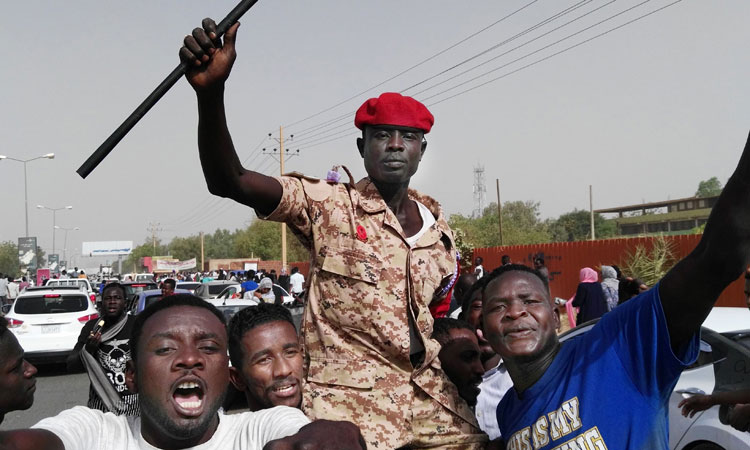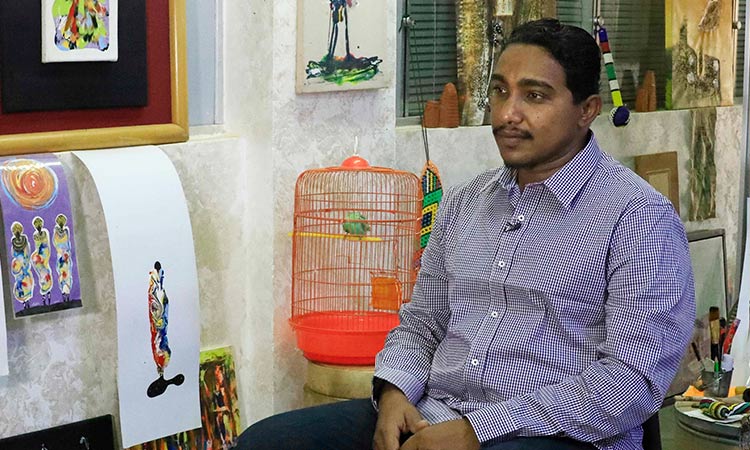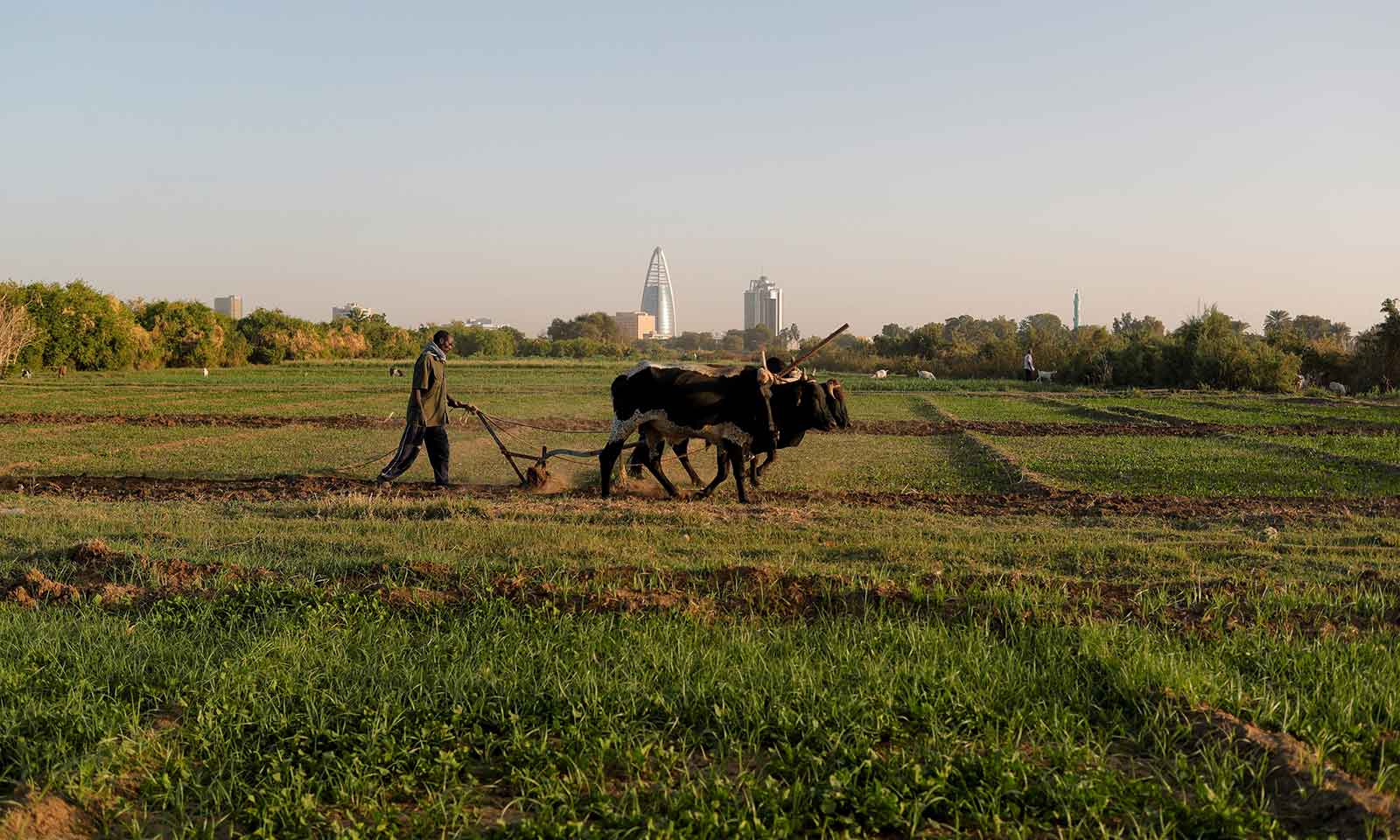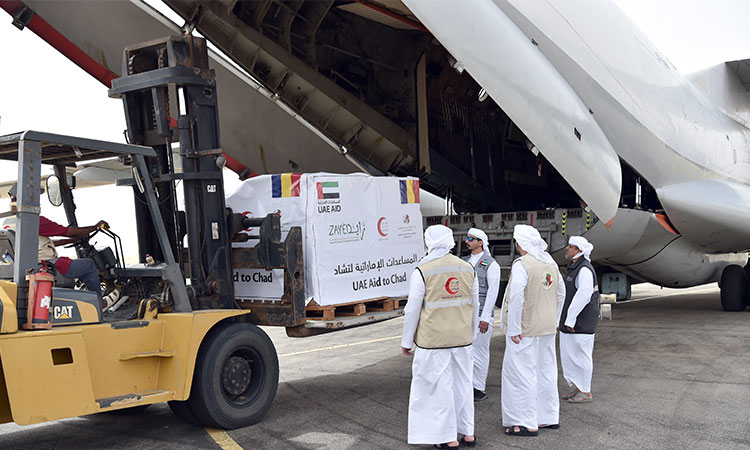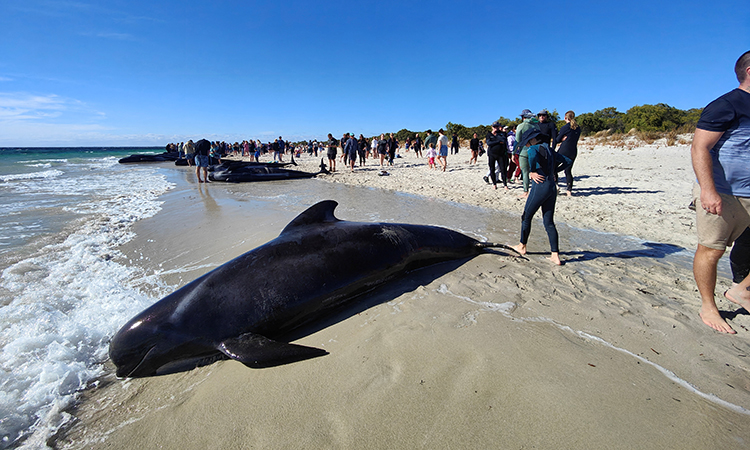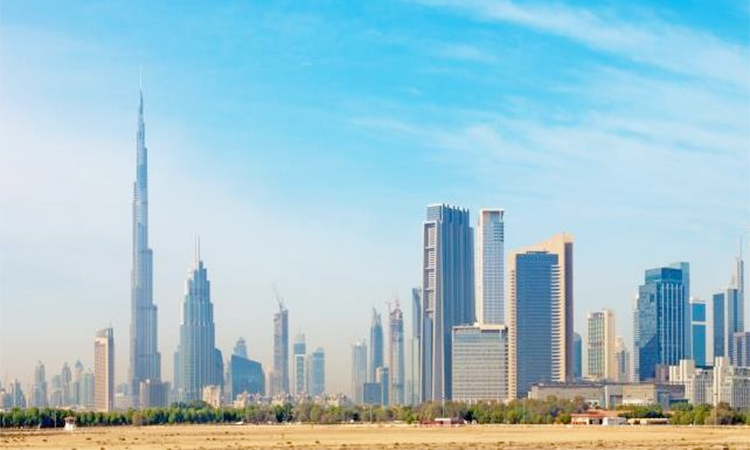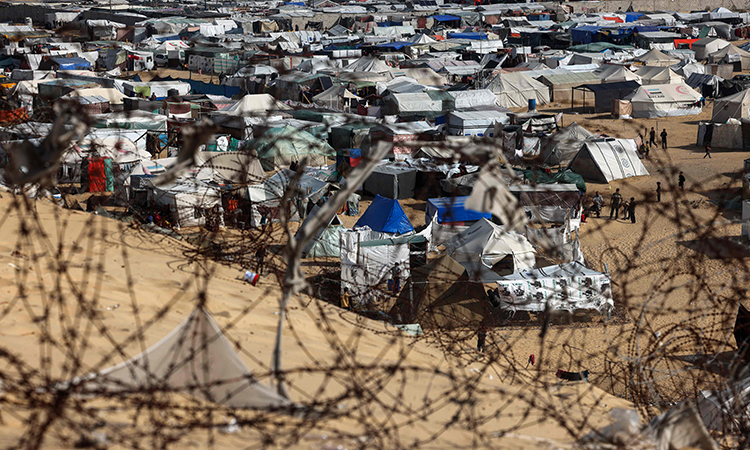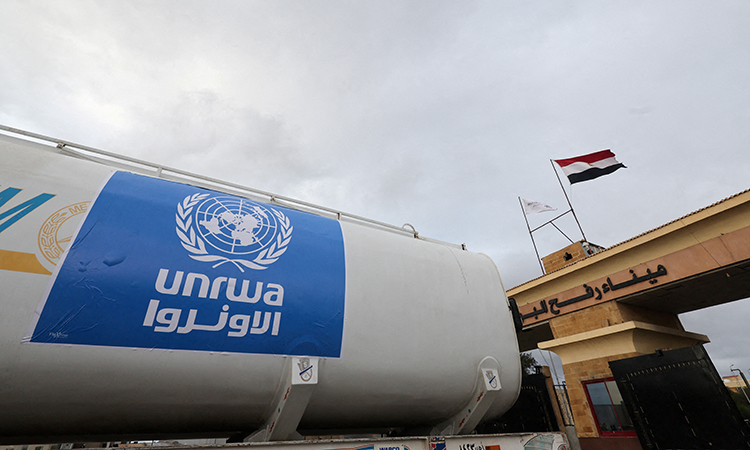US urges Sudan army to bring civilians into government
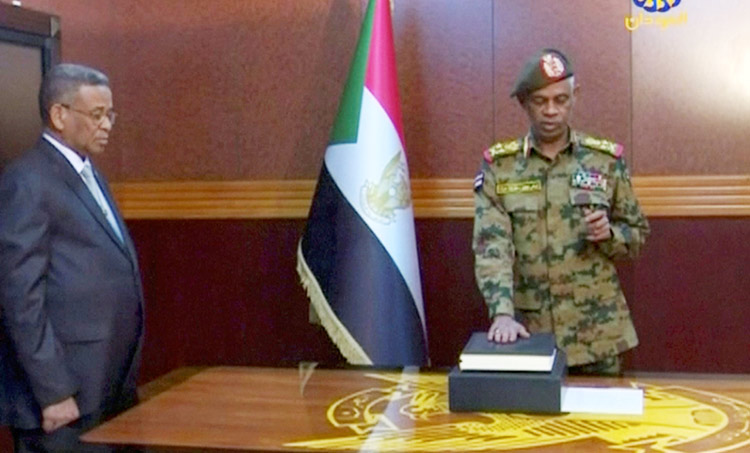
Awad Mohamed Ahmed Ibnouf is sworn in as head of Military Transitional Council in Khartoum on Thursday. Reuters
The United States on Thursday urged Sudan's army to bring civilians into government after ousting veteran leader Omar Al Bashir, saying an announced two-year timeline was too long.
Washington calls "on transitional authorities to exercise restraint and to allow space for civilian participation within the government," State Department spokesman Robert Palladino told reporters.
His comments came after Sudan's army announced "the toppling of the regime," to be replaced by a transitional military council, but there was growing international pressure for a handover to civilian rule.
Jubilation in Khartoum that Sudan's era of iron-fisted rule by Bashir was ending on Thursday quickly soured when protesters realised the old regime had no plans to go.
Sudan's state-run broadcaster says Defence Minister Awad Mohammed Ibnouf is being sworn in as head of a new military council that will run the country for two years.
"The Sudanese people should determine who leads them and their future and the Sudanese people have been clear and are demanding a civilian-led transition," Palladino said.
Sudanese men chant slogans as a soldier imitates President Omar Al Bashir waving his trademark cane on Thursday. AFP
"The United States position is the Sudanese people should be allowed to do so sooner than two years from now," he said.
The United States had been trying to mend relations with Sudan after years of tension with Bashir, who seized power in a 1989 coup and hosted Al Qaeda leader Osama Bin Laden, who stayed until 1996.
Palladino said that the United States was "suspending" the so-called Phase II talks, in which Washington was considering removing Khartoum from the US blacklist of state sponsors of terrorism, but he added: "We remain open to engagement."
Bashir remains wanted by the International Criminal Court for crimes in the western Darfur region that Washington has described as genocide.
Palladino said that the United States supported accountability on Darfur but declined to specify whether Bashir — or the coup leader, Defence Minister Awad Ibnouf — should face extradition.
"We believe that the victims of Darfur deserve justice and that accountability is essential for achieving a stable and lasting peace in Darfur," he said.
"The United States continues to call for those responsible for the horrific crimes that were committed in Darfur to be held accountable for those actions," he said.
Also on Thursday the State Department raised to the highest level its travel advisory for Sudan.
"Do not travel," it warned, after ordering the departure of non-emergency US government employees from the country.
"There is a national state of emergency in effect across Sudan, which gives security forces greater arrest and incarceration powers," the advisory said.
"The Sudanese people should determine who leads them and their future and the Sudanese people have been clear and are demanding a civilian-led transition
State television and radio played patriotic music, reminding older Sudanese of how military takeovers unfolded during previous episodes of civil unrest.
DIVISIVE FIGURE
Bashir, a former paratrooper who seized power in a bloodless coup in 1989, has been a divisive figure who has managed his way through one internal crisis after another while withstanding attempts by the West to weaken him.
Sudan has suffered prolonged periods of isolation since 1993, when the United States added Bashir’s government to its list of terrorism sponsors for harbouring militants. Washington followed up with sanctions four years later.
Bashir has also been indicted by the International Criminal Court (ICC) in The Hague over allegations of genocide in Sudan’s Darfur region during an insurgency that began in 2003.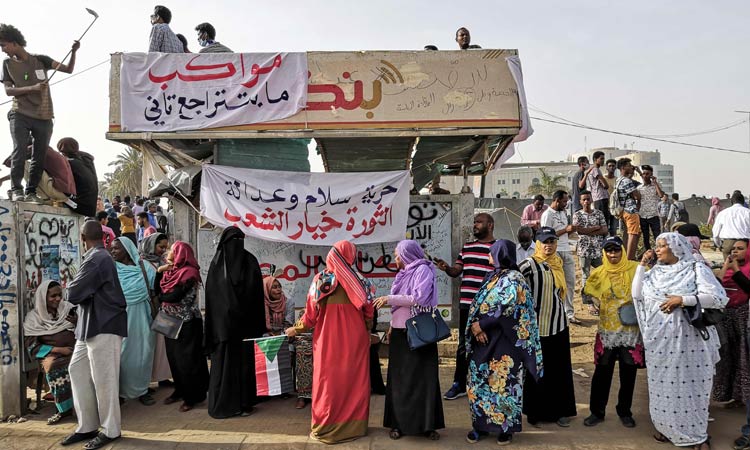
Sudanese women take part in anti-regime demonstrations on Thursday. AFP
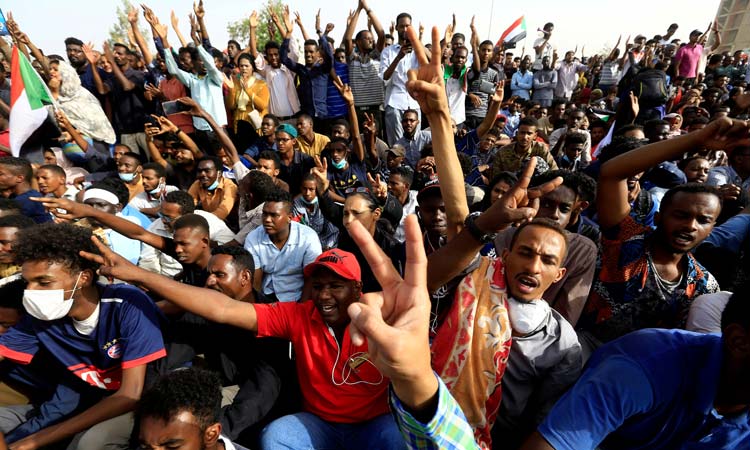
Sudanese demonstrators cheer as they attend a protest rally in Khartoum, Sudan, on Thursday. Reuters
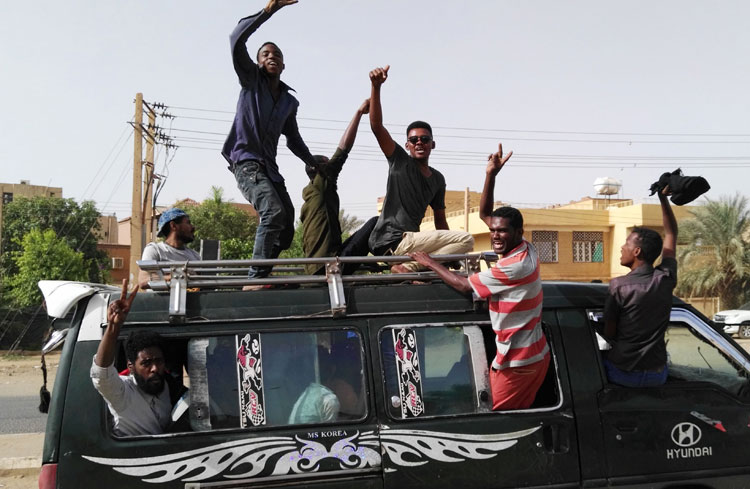
Sudanese people chant slogans in the capital Khartoum on Thursday. AFP
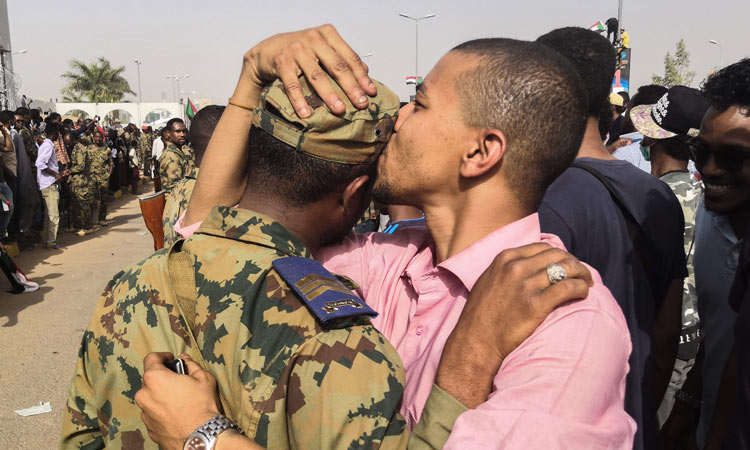
A Sudanese anti-regime protester kisses a soldier on the head during protests on Thursday. AFP
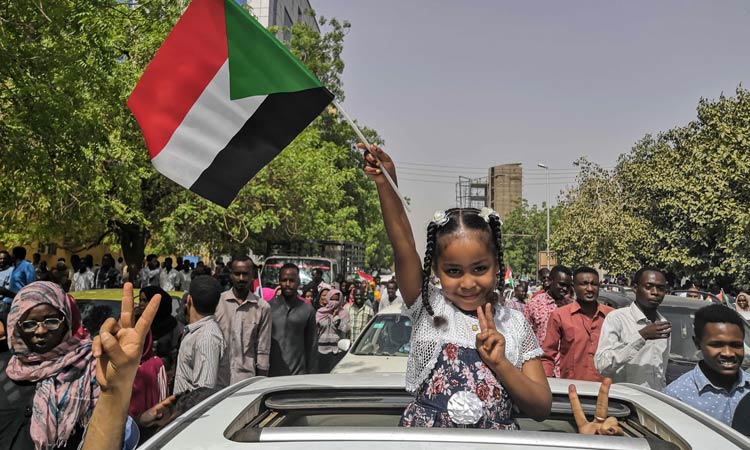
A Sudanese girl flashes the victory sign and holds the national flag during a rally near the military headquarters in the capital Khartoum on Thursday. AFP
The latest crisis has escalated since the weekend, when thousands of demonstrators began camping out outside the Defence Ministry compound in central Khartoum, where Bashir's residence is located.
Clashes erupted on Tuesday between soldiers trying to protect the protesters and intelligence and security personnel trying to disperse them. At least 11 people died in the clashes, including six members of the armed forces, the information minister said, citing a police report.
"It has fallen, we won.
Since Dec. 19, Sudan has been rocked by persistent protests sparked by the government's attempt to raise the price of bread, and an economic crisis that has led to fuel and cash shortages
Opposition figures have called for the military to help negotiate an end to Bashir's nearly three decades in power and a transition to democracy.
The demonstrators at the Defence Ministry had said that they wanted to submit a petition for the armed forces to take their side in their attempt to remove Bashir and his Islamist-backed administration.
Reuters